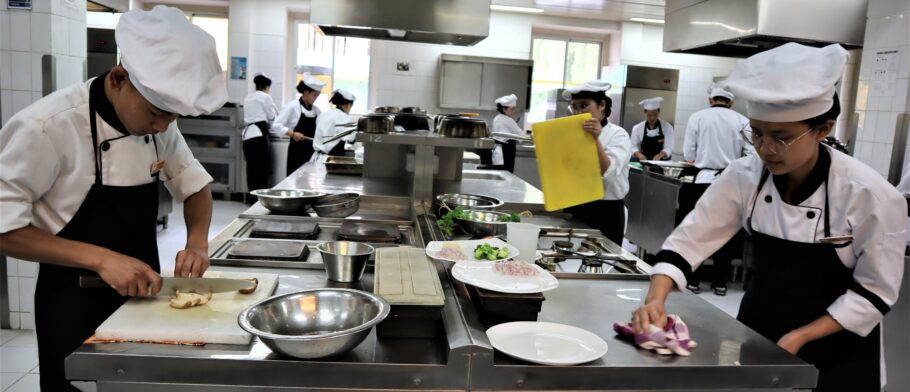 2 Yrs
2 Yrs
Institute Training: 1896 Hours
OJT: 624 Hours
Total = 2520 Hours
Practical: 1 :15
Theory: 1 : 15
The Culinary Arts program at RITH is a comprehensive two-year course designed to equip students with the essential skills and knowledge required to excel in professional kitchens, both in Bhutan and internationally. The curriculum covers key areas such as Kitchen Management, Basics of Culinary Arts, Exclusive Culinary Arts, and Patisserie, ensuring students develop a strong foundation in both theoretical and practical aspects of culinary operations.
Students will gain hands-on experience in food preparation, kitchen organization, and international cuisine, learning essential techniques such as stock preparation, sauce making, food portioning, garnishing, and professional plating. The program also focuses on pastry and baking skills, enabling students to create classic desserts, pastries, and a variety of breads.
With a global perspective, students will explore diverse culinary traditions and master dishes from Bhutanese, Indian, Thai, and other international cuisines. The curriculum also emphasizes food safety, cost control, and efficient kitchen management to prepare graduates for successful careers in hotel and restaurant kitchens. Through practical training and industry exposure, students will develop the expertise needed to thrive in the dynamic culinary industry, making them highly competitive for roles in national and international hospitality establishments